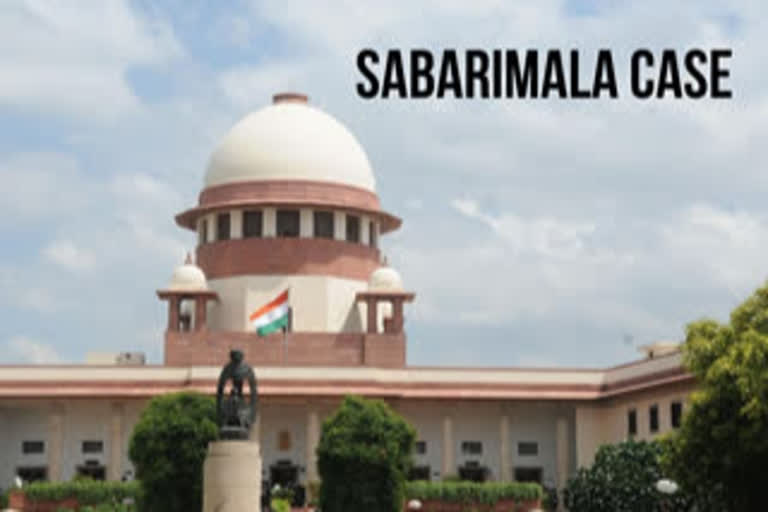New Delhi: The Supreme Court on Monday framed seven questions for its deliberations which include the scope of freedom of religion and whether a person, not belonging to a particular faith, can file a PIL questioning the religious practice of that religion.
A nine-judge Constitution bench headed by Chief Justice S A Bobde held that its benches can refer questions of law to a larger bench while exercising its limited power under review jurisdiction as done in the Sabarimala case.
The bench, also comprising justices R Banumathi, Ashok Bhushan, L Nageswara Rao, M M Shantanagoudar, S A Nazeer, R Subhash Reddy, B R Gavai and Surya Kant, read out the seven questions framed by it on the scope of religious freedom in various religions.
The top court made clear that it was open to addition and deletion of issues and said the first issue was as to "What is the scope and ambit of right to freedom of religion under Article 25 of the Constitution of India".
The bench said it would examine as to "whether a person not belonging to a religious denomination or religious group can question a practice of that religious denomination or religious group" by filing a PIL.
"What is the interplay between the rights of persons under Article 25 of the Constitution of India and rights of religious denomination under Article 26," read the second issue to be deliberated upon by the bench.
The third question is whether rights of a religious denomination under Article 26 are subject to other fundamental rights apart from public order, morality and health.
"What is the scope and extent of the word 'morality' under Articles 25 and 26 of Constitution and whether it is meant to include constitutional morality," read the fourth question.
The bench said it would also examine the "scope and extent of judicial review" with regard to religious practice as referred under Article 25 of the Constitution.
"What is the meaning of expression 'sections of Hindus' occurring in Article 25 (2) (b) of the Constitution of India," read the sixth issue.
These issues have been framed afresh after a battery of lawyers had raised objections that the 5-judge constitution bench headed by the then Chief Justice Ranjan Gogoi (since retired) on November 14, 2019, had framed vague and broad issues which cannot be decided without any facts of the particular case.
Besides the Sabarimala case, the verdict had also referred issues of entry of Muslim women into mosques and dargahs and of Parsi women, married to non-Parsi men, being barred from the holy fireplace of an Agiary to the larger bench.
(PTI REPORT)
Also Read: No link between coronavirus, migratory birds: Prakash Javadekar



